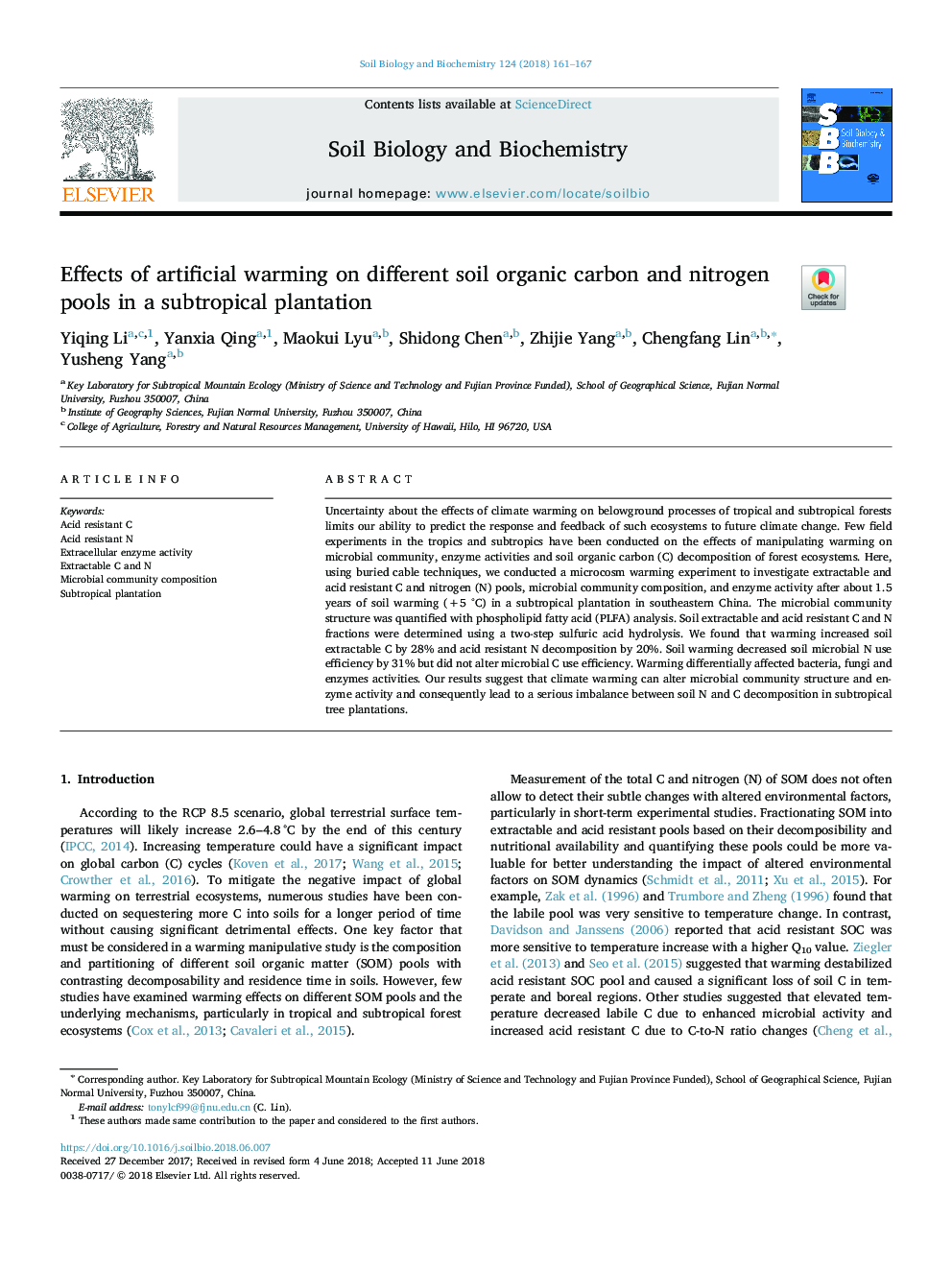| Article ID | Journal | Published Year | Pages | File Type |
|---|---|---|---|---|
| 8362572 | Soil Biology and Biochemistry | 2018 | 7 Pages |
Abstract
Uncertainty about the effects of climate warming on belowground processes of tropical and subtropical forests limits our ability to predict the response and feedback of such ecosystems to future climate change. Few field experiments in the tropics and subtropics have been conducted on the effects of manipulating warming on microbial community, enzyme activities and soil organic carbon (C) decomposition of forest ecosystems. Here, using buried cable techniques, we conducted a microcosm warming experiment to investigate extractable and acid resistant C and nitrogen (N) pools, microbial community composition, and enzyme activity after about 1.5 years of soil warming (+5 °C) in a subtropical plantation in southeastern China. The microbial community structure was quantified with phospholipid fatty acid (PLFA) analysis. Soil extractable and acid resistant C and N fractions were determined using a two-step sulfuric acid hydrolysis. We found that warming increased soil extractable C by 28% and acid resistant N decomposition by 20%. Soil warming decreased soil microbial N use efficiency by 31% but did not alter microbial C use efficiency. Warming differentially affected bacteria, fungi and enzymes activities. Our results suggest that climate warming can alter microbial community structure and enzyme activity and consequently lead to a serious imbalance between soil N and C decomposition in subtropical tree plantations.
Related Topics
Life Sciences
Agricultural and Biological Sciences
Soil Science
Authors
Yiqing Li, Yanxia Qing, Maokui Lyu, Shidong Chen, Zhijie Yang, Chengfang Lin, Yusheng Yang,
